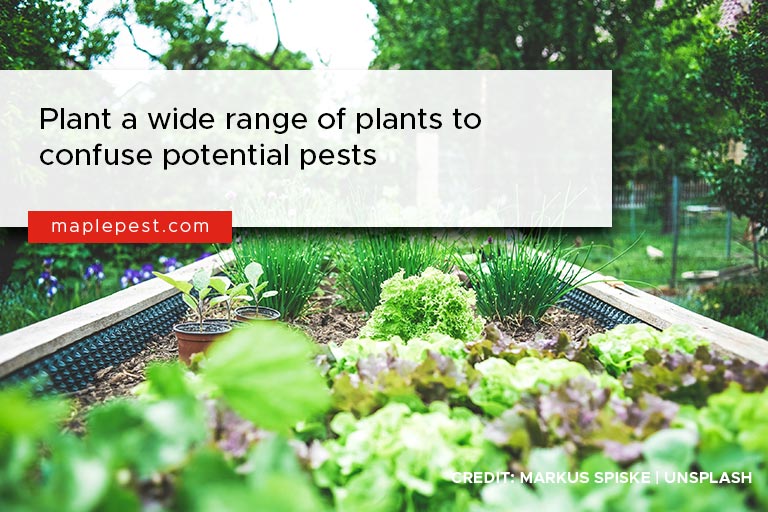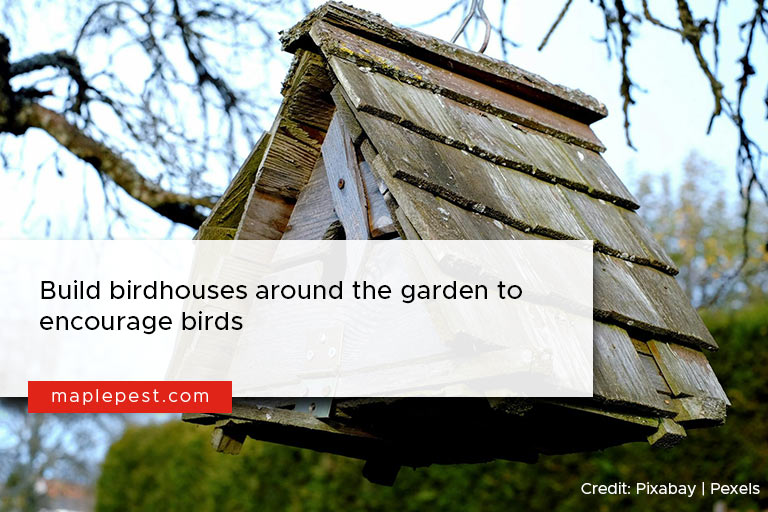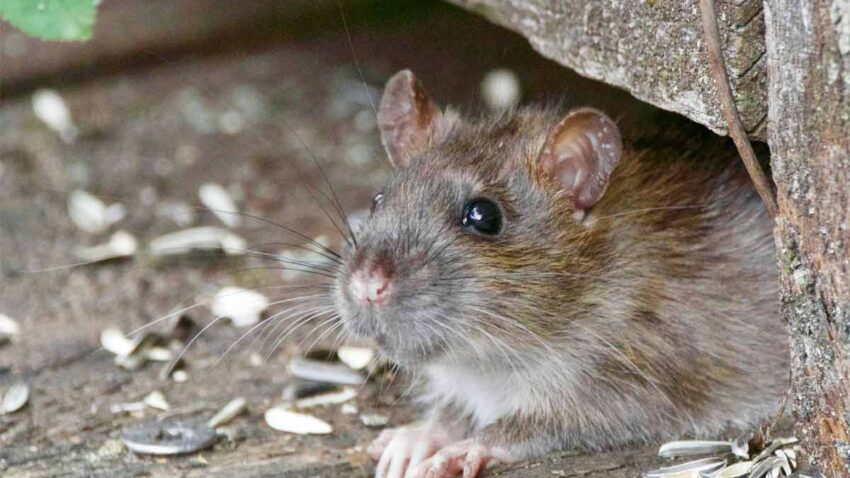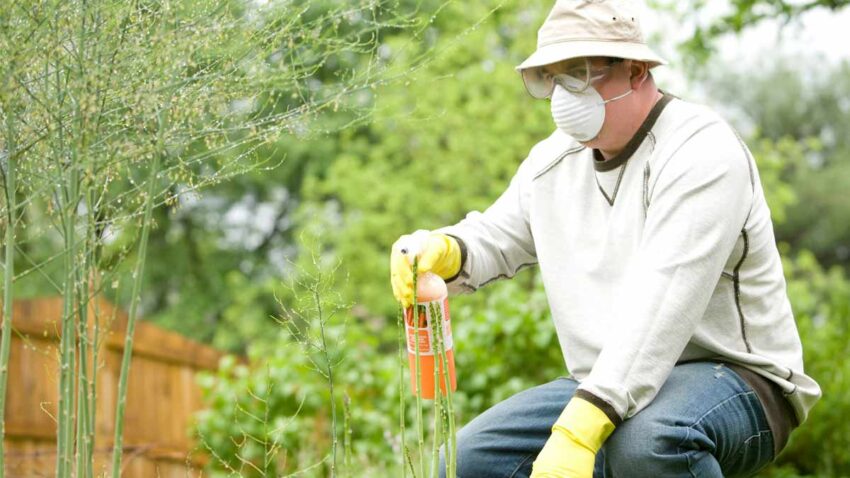Cultivating a vibrant garden in Richmond Hill is a rewarding experience. However, unwanted pests can quickly turn your flourishing oasis into a battlefield. But fear not, fellow gardener! There are effective ways to deter these pesky critters without resorting to harsh chemicals. Read on to explore a range of organic solutions to keep your Richmond Hill garden thriving and keep them away from your property, naturally.
Understanding Your Enemy
The first step is identifying the specific pests plaguing your garden. Common Richmond Hill garden foes include:
-
Aphids
These tiny, sap-sucking insects congregate on the undersides of leaves, causing stunted growth and yellowing.
-
Beetles
Various types of beetles can munch on leaves, flowers, and fruits.
-
Cabbage moths
The caterpillars of these moths devour leaves, leaving behind ragged holes.
-
Cutworms
These underground caterpillars sever young seedlings at their base.
-
Japanese beetles
These metallic green beetles with coppery wings skeletonize leaves.
-
Slugs and snails
These slimy creatures leave a trail of destruction on leaves and fruits.
Building a Strong Defence
Once you’ve identified your enemy, you can implement a multi-pronged approach to keep them at bay. Here are some effective organic methods:
Encourage Beneficial Insects:
-
Ladybugs
These colourful beetles are aphid assassins, devouring them with gusto. Plant dill, fennel, and yarrow to attract ladybugs.
-
Lacewings
The larvae of lacewings are ferocious predators of aphids, mealybugs, and other soft-bodied insects. Attract them with coriander, dill, and cosmos.
-
Minute pirate bugs
These tiny warriors feast on a variety of garden pests, including thrips and aphids. Plant alyssum and nasturtiums to entice them.
-
Hoverflies
These bee-mimics provide adult pest control while their larvae devour aphids. Attract them with dill, fennel, and flowering herbs.

Plant Diversity is Key
Monoculture gardens, with only one type of plant, are a buffet for specialized pests. Create a diverse ecosystem by planting a variety of vegetables, flowers, and herbs. This confuses pests and makes your garden less attractive to them.
Companion Planting
Certain plants have a symbiotic relationship, benefiting each other. It may help to be aware of which Canadian plants go well together, particularly in the fall. Not only is it your last chance to get some planting done before winter, it’s a good chance to pest-proof your garden before pests have time to settle in before it gets cold. Here are some examples:
-
Tomatoes and marigolds
Marigolds deter nematodes and whiteflies, while tomatoes benefit.
-
Carrots and onions
Flies dislike the strong scent of onions, protecting carrots.
-
Beans and corn
Beans fix nitrogen in the soil, benefiting corn, while corn provides shade for the beans.
Row Covers and Floating Fabric
These lightweight barriers physically prevent pests from reaching your plants. Use row covers made of breathable fabric to protect young seedlings from insects like cabbage moths. Floating fabric allows light and water penetration while deterring flying pests.
Natural Pest Repellents
Nature offers an arsenal of readily available pest deterrents:
-
Garlic spray
Repels aphids, beetles, and other pests. Soak chopped garlic cloves in water overnight, strain, and dilute with water before spraying.
-
Hot pepper spray
Deters a wide range of pests. Mince hot peppers, soak them in water for a day, strain, dilute heavily with water and dish soap, and spray. (Caution: Wear gloves when handling hot peppers.)
-
Neem oil spray
A broad-spectrum organic pesticide effective against many pests. Follow product instructions carefully.
Diatomaceous Earth (DE):
This naturally occurring, powdery substance made from fossilized algae cuts and dehydrates insects, killing them on contact. Apply DE lightly around the base of plants, focusing on areas where crawling pests are a problem. Reapply after rain.
Handpicking and Squashing:
For small infestations, the simplest solution is to handpick and remove pests. Wear gloves and squish them, or drown them in a bucket of soapy water.
Encourage Birds:
Birds are natural predators of many garden pests. Install bird feeders and birdhouses to attract them to your garden.
Promote Healthy Soil:
Healthy soil with a diverse microbial community is more resilient to pests. Add compost or aged manure to your garden beds to create a thriving ecosystem that helps suppress pest populations.
Crop Rotation:
Planting the same crops in the same location year after year creates an ideal environment for pests that specialize in those plants. Practice crop rotation by planting different vegetables in the same bed each season.
Beyond the Basics: Taking Your Organic Arsenal to the Next Level
While the previous methods provide a solid foundation, sometimes more targeted action is needed. Here’s how to elevate your organic pest control game:
Deep Dives into Specific Pests:
-
Research
Identify the specific pest plaguing your garden. Online resources from reputable gardening organizations can provide detailed information on their life cycle, weaknesses, and organic control methods tailored to their biology.
-
Targeted Solutions
Based on your research, explore specific organic interventions. For instance, handpicking Japanese beetles may be impractical on a large scale, but strategically placing Japanese beetle traps can significantly reduce their population.
Building a Diverse “Pest Patrol”
-
Beneficial Insect Hotels
Create a haven for ladybugs, lacewings, and other beneficial predators by building or purchasing insect hotels. These structures provide shelter and nesting sites, encouraging beneficial insects to take up permanent residence in your garden.
-
Habitat Enhancement
Plant a variety of flowering herbs and native wildflowers throughout your garden. These plants not only attract beneficial insects but also provide them with a source of nectar and pollen, essential for their survival and reproduction.
Advanced Tools for Your Toolbox
-
Biofumigation
Certain plants like mustard seed meal or buckwheat can be tilled into the soil before planting. These plants release compounds that kill soil-borne pests like nematodes and fungus gnats.
-
Homemade Sprays
For a stronger repellent, consider concocting a hot pepper and garlic spray. However, exercise caution and follow reputable recipes online to ensure proper dilution and avoid harming your plants.
Patience and Persistence
Organic pest control requires patience and persistence. Unlike chemical solutions that offer immediate results, organic methods often take time to establish control. Regularly monitor your garden, repeat treatments as needed, and celebrate each victory in your battle against unwanted pests.
When All Else Fails…
Sometimes, even with your best efforts, organic methods may not completely eliminate a severe pest problem. In such cases, consider consulting a professional organic pest control service. These services utilize environmentally friendly methods like targeted insect pathogenic bacteria or beneficial nematodes, minimizing harm to your garden and surrounding environment.
Remember, organic gardening is a learning process. By constantly observing your garden, researching specific pests, and experimenting with different organic techniques, you’ll develop your own arsenal of effective methods.
Taking a Long-Term Approach
Remember, organic pest control is a preventative approach rather than a quick fix. Consistency is key! Regularly monitor your garden for signs of pest activity. The sooner you address a problem, the easier it is to manage. By implementing these organic solutions and fostering a healthy garden ecosystem, you can create a haven for your desired plants and deter unwanted pests, ensuring a flourishing Richmond Hill garden year after round.
Additional Tips for Richmond Hill Gardeners
-
Stay Informed
The Richmond Hill Horticultural Society offers resources and workshops on organic gardening techniques. Check out their event calendar for more info on events that might help you.
-
Local Expertise
Consult your local nursery for advice on pest control specific to Richmond Hill’s climate and common pests.
-
Learn from Others
Chat with fellow gardeners in your neighbourhood to share experiences and swap organic pest control tips.
Embrace the Journey
Organic pest control is a rewarding journey, fostering a more balanced and sustainable garden environment. While it may require more effort initially compared to using chemical pesticides, the long-term benefits are numerous. You’ll be contributing to a healthier ecosystem, attracting beneficial wildlife, and ultimately, enjoying the fruits (and vegetables!) of your labour without harmful residues. So, grab your gloves, embrace the natural approach, and watch your Richmond Hill garden thrive!
When you need a helping hand keeping your garden and home pest-free, give Maple Pest Control a call. We have a wide range of experience dealing with a wide range of pests, from rats to ants to raccoons and squirrels. Our offer also includes a 6-month pest-free guarantee after we’ve serviced your home, to ensure you have some peace of mind after we’ve gone. Give us a call now at (416) 520-8575 for solutions to your pest-related problems.



